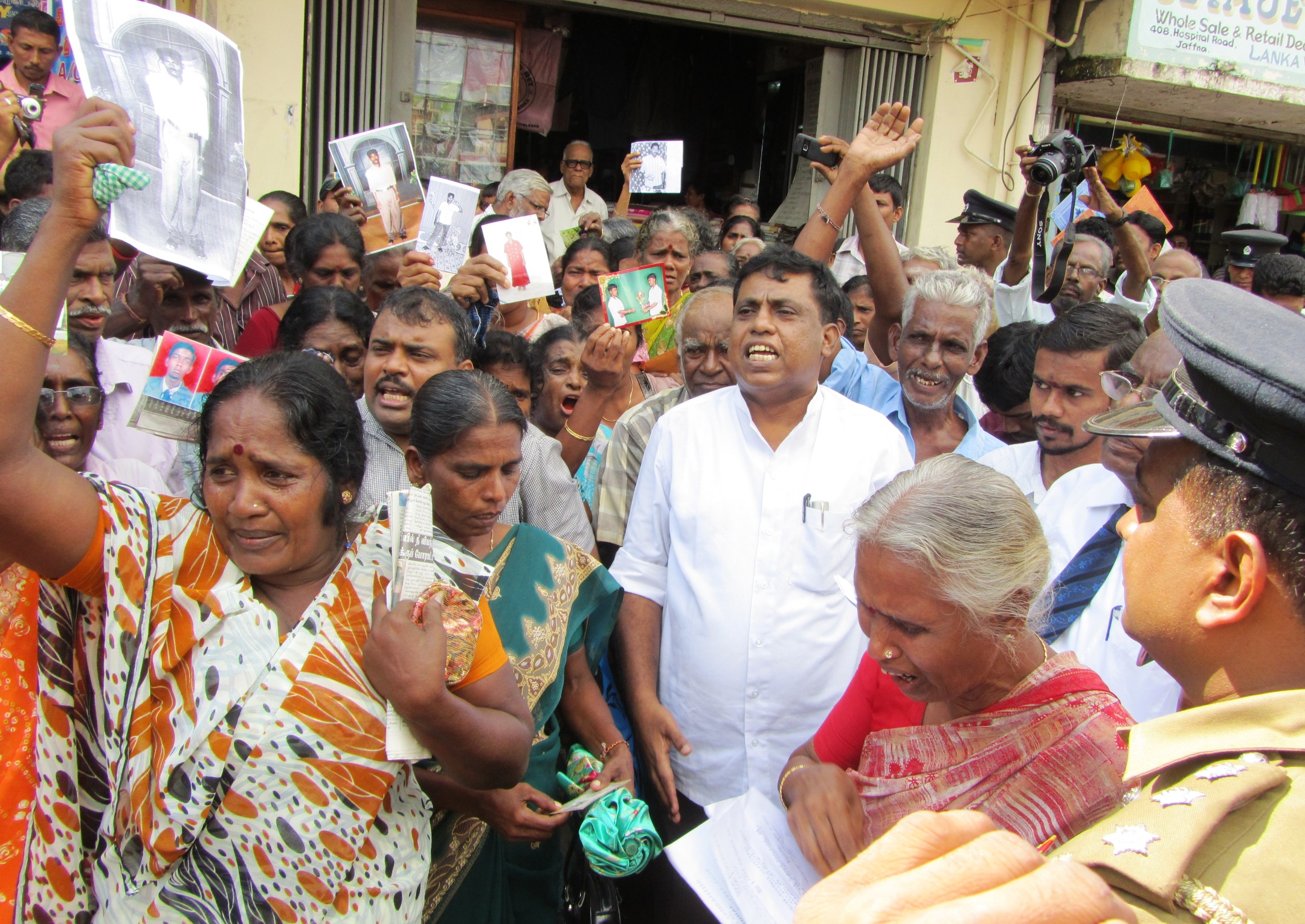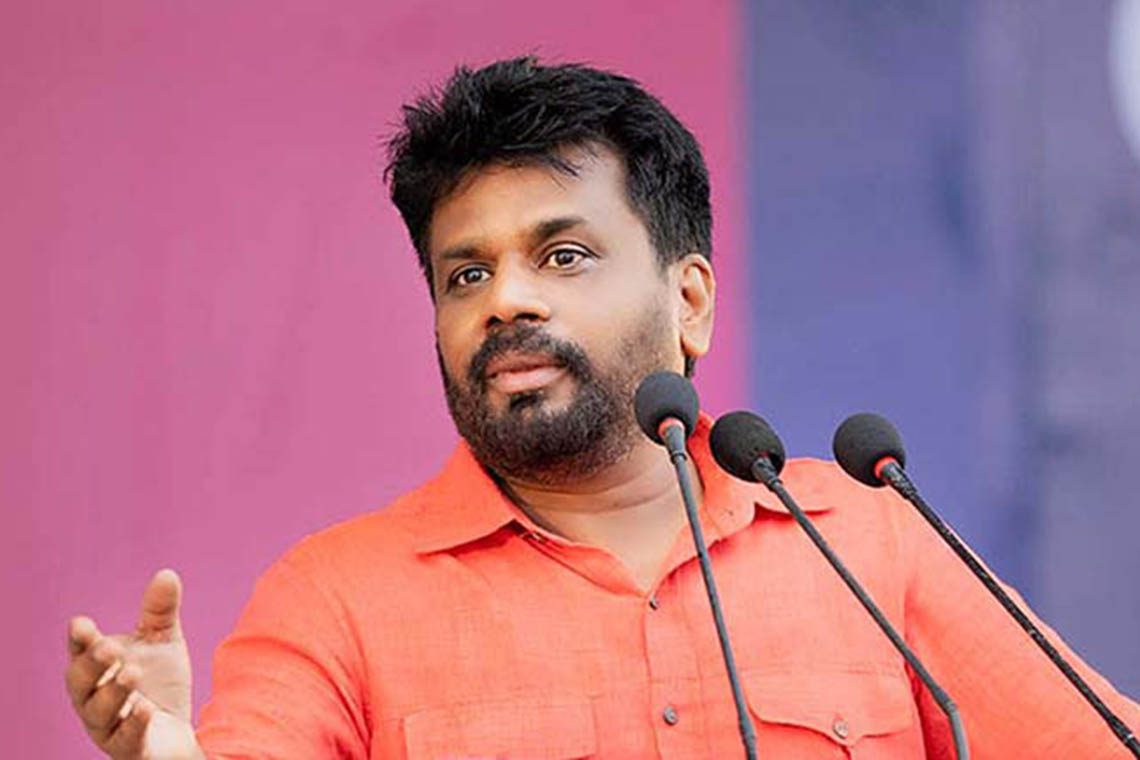Tamils protest in Jaffna against disappearances
 |
| Relatives of missing hold up pictures (Pictures: TamilNet) |
Relatives of people that had disappeared during and after the war in Vanni staged a protest in Jaffna on Human Rights Day on Friday.
Hundreds of soldiers and policemen across the peninsula harassed civilians in an attempt to intimidate and block the protest from going ahead, TamilNet reported.
The protest is the latest sign of simmering anger and injustice felt by Tamils in the North-East.
However, the growing defiance and peaceful protests staged by the Tamil people, continue to be repressed by the Sri Lankan government and ignored by the Sinhala press.


